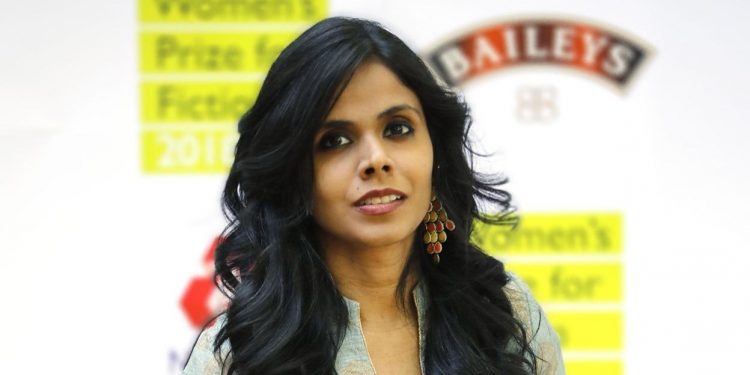On Monday, September 19, the Hermann Kesten Prize winners were declared by the PEN Center in Darmstadt, Germany. The Indian novelist and poet Meena Kandasamy, whose works include “The Gypsy Goddess” (2014) and “When I Hit You: Or, A Portrait of the Writer as a Young Wife” (2017), receives the honour this year. Additionally, she has had several poetry anthologies published, two of which are “Ms Militancy” (2010) and “#ThisPoemWillProvokeYou and Other Poems” (2015).
After learning, she had won, Kandasamy told DW in a statement, “Honestly, I am not sure how to process it. She continued, “Previous recipients include Günter Grass and Harold Pinter, and the weight of what this prize means is actually still sinking in.” She added that she regards this award “not only as an affirmation of what I have done but of the historical responsibility that we all have as progressive writers and artists in India today.”
Kandasamy was described as “a fearless fighter for democracy and human rights, for the free press, and against the suppression of landless people, minorities, and Dalits in India” by Cornelia Zetzsche, vice president of the German PEN Center. “Ms Militancy,” as the title of one of her books puts it, is more appropriate. Zetsche was referring to “Ms Militancy,” a collection of poems published by Kandasamy in 2011.
Zetzsche said, “With empathy, analytical precision and literary fervour, she [Kandasamy] goes through patriarchal, feudal structures and identifies in speeches and writings, violence against women, consequences of unbridled capitalism and the massacre of farmers in southern India.”
Angela Dorn, the state of Hesse’s minister of art and culture, praised the Indian author and said that Kandasamy revolted in her works against oppression and inequity. She added that Kandasamy constantly stands up when intellectuals, dissidents, and academics are in difficulty and offers victims of violence a voice.
Kandasamy was born in Chennai, India, in 1984 to professorial parents. She describes herself as an “anti-caste activist, poet, writer, and translator” and has been composing poems since she was a teenager. Her work strives to deconstruct grief and violence while highlighting the militant resistance to caste, gender, and ethnic oppression, according to her website.
The Women’s Prize for Fiction, the International Dylan Thomas Prize, and the Hindu Literary Prize have all shortlisted Kandasamy’s books. She was chosen as a Fellow of the British Royal Society of Literature (RSL) this year. A compilation of her essays titled “The Orders Were to Rape You: Tamil Tigresses in the Eelam Struggle” was also published in 2021.
Kandasamy has spoken out against the persecution of writers in India, specifically Telugu poet Varavara Rao, who was detained last year on suspicion of instigating caste-based violence. She also advocated for poet and Delhi University professor GN Saibaba, who is now imprisoned for allegedly having connections to left-wing organisations.
Authorities allege that Rao incited violence at the Bhima-Koregaon war monument the next day by making incendiary remarks during the Elgar Parishad meeting held at Shaniwar Wada in Pune on December 31, 2017. The Nagpur Central Jail has held Saibaba since March 2017. Because of his Maoist connections, he was given a life sentence.
On November 15 of this year, the Indian novelist will receive the award from the German PEN Center at a ceremony in Darmstadt. The prize money for the winner will be €20,000 ($19,996). This year, the PEN Center is also presenting a special prize for encouragement to the website “Weiter Schreiben” (German for “Keep writing”) for providing a forum for writers from conflict zones and exiles to voice their ideas.
The Hermann Kesten Prize acknowledges those who defend the rights of threatened writers and journalists in accordance with the PEN association’s charter. Previous winners include Can Dündar, Harold Pinter, Liu Xiaobo, Anna Politkovskaya, and Günter Grass.











